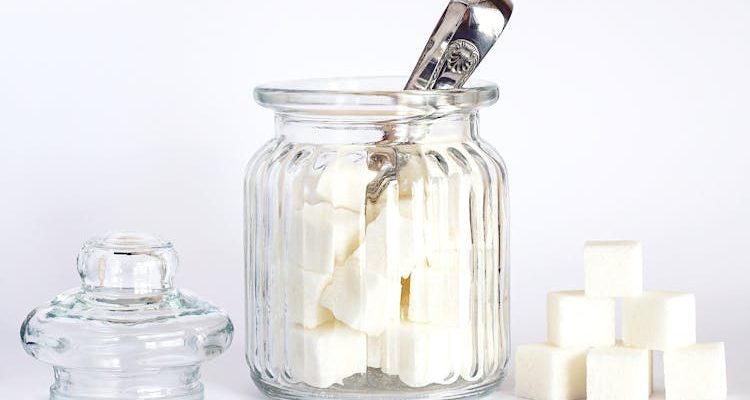Sugar, with its delightful taste and energy boost, has long been a beloved ingredient. However, recent years have seen a growing awareness of the potential downsides of excessive sugar consumption. From health concerns like weight gain and increased risk of chronic diseases to environmental impacts tied to sugar production, many are seeking ways to reduce their sugar intake.
The good news? Embracing sugar reduction doesn’t mean sacrificing sweetness! A variety of “sugar reduction specialty sweeteners” offer delicious alternatives, each with unique characteristics and potential benefits. But with so many options available, making informed choices can be tricky. This blog post aims to guide you on this journey, showcasing the advantages of mindful sugar reduction and helping you navigate the world of sugar substitutes to find the perfect fit for your needs.
Embracing the Sweet Rewards of Sugar Reduction
Reducing sugar intake offers a multitude of potential health benefits:
- Improved Weight Management: Sugar is calorie-dense, and substituting it with lower-calorie options can support weight management efforts.
- Enhanced Blood Sugar Control: Reducing sugar intake can be beneficial for managing blood sugar levels and potentially reducing the risk of type 2 diabetes.
- Reduced Risk of Chronic Diseases: Research suggests a link between high sugar intake and increased risk of certain chronic diseases such as heart disease and some cancers.
- Improved Dental Health: Excessive sugar intake can contribute to tooth decay. Reducing sugar can benefit your oral health.
Beyond Health: The Environmental Impact of Sugar Reduction
Sugar production often involves intensive agriculture, water usage, and greenhouse gas emissions. By opting for lower-sugar alternatives, you can contribute to a more sustainable food system. Consider these factors:
- Reduced Water Footprint: Some sugar substitutes require less water for production compared to traditional sugar.
- Sustainable Farming Practices: Some sugar substitutes come from plants cultivated using sustainable farming techniques, minimizing environmental impact.
- Lower Carbon Footprint: Certain sugar substitutes have a lower carbon footprint compared to traditional sugar due to reduced processing or renewable energy sources in production.
Navigating the World of Sugar Reduction Specialty Sweeteners
Now, let’s explore the exciting world of sugar reduction specialty sweeteners. Remember, each option has its own unique characteristics and potential benefits. Choosing the right one depends on your personal preferences, dietary needs, and intended use.
Natural Sweeteners:
- Stevia: Derived from the stevia plant, stevia offers intense sweetness with minimal calories and no impact on blood sugar. Some find it has a slightly bitter aftertaste, which can be masked by combining it with other sweeteners.
- Monk Fruit: Extracted from the monk fruit, this sweetener offers sweetness similar to sugar with no aftertaste and no impact on blood sugar. However, it can be more expensive than other options.
- Allulose: This rare sugar occurs naturally in some fruits and has sweetness comparable to sugar with fewer calories and minimal impact on blood sugar. It also browns like sugar, making it ideal for baking.
Sugar Alcohols:
- Erythritol: Found in some fruits and fermented foods, erythritol offers sweetness similar to sugar with minimal calories and no impact on blood sugar. It doesn’t cause digestive issues for most people and blends well in baking.
- Xylitol: Extracted from fruits and vegetables, xylitol offers sweetness similar to sugar with slightly fewer calories and a lower impact on blood sugar. However, excessive consumption can cause digestive discomfort in some individuals.
Important Tips for Choosing Sugar Reduction Specialty Sweeteners
- Read Labels Carefully: Check the ingredient list and nutrition information to understand the sweetener type, calorie content, and potential impact on blood sugar.
- Start Slow: Introduce new sweeteners gradually to see how your body reacts.
- Consider Your Needs: Choose sweeteners based on your dietary restrictions, desired sweetness level, and intended use (baking, beverages, etc.).
- Experiment and Mix & Match: Combine different sweeteners to achieve the perfect taste and sweetness intensity for your preferences.
- Consult a Healthcare Professional: If you have any health concerns or dietary restrictions, discuss sugar reduction and sweetener options with your healthcare professional.
Embrace the Sweetness of Change
By embracing mindful sugar reduction and exploring the world of sugar reduction specialty sweeteners, you can embark on a journey toward a healthier and more sustainable lifestyle. Remember, it’s not about complete deprivation, but about making informed choices and enjoying sweetness in a balanced way.

